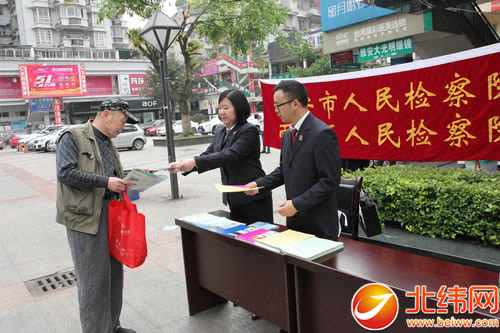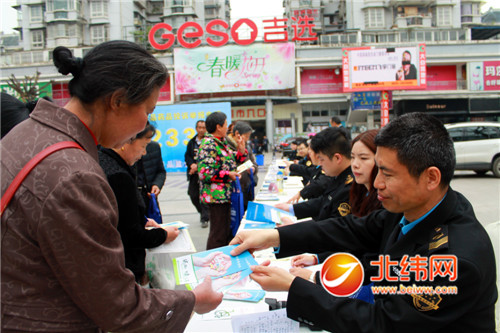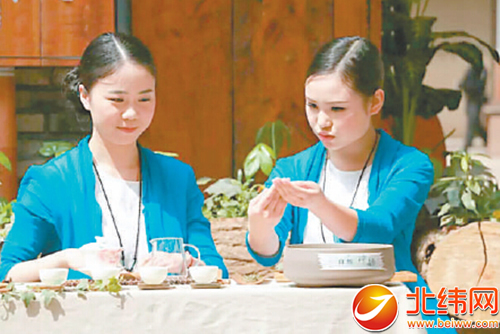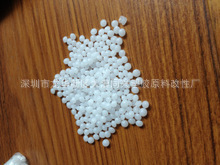It's time to reclaim being single as a symbol of power
"Are you swiping?" my friend asks me over breakfast one morning. I gulp down a spoonful of woefully bland porridge and think for a moment about how to reply.
The answer was no, I wasn't swiping. But in saying so, I was met with a bewildered expression. I'm reluctant to swipe these days, or just to date in general, due to a long, troubling pattern of power imbalances that have occurred in every single relationship I've had since I started dating when I was 15.
Now, at age 30, my status as the perennial singleton is firmly established after taking countless protracted hiatuses from dating. Not because I don't like the idea of being in a couple, but rather because I find dating really hard. Let's be real, it's a truth universally acknowledged that dating is plain sailing for literally no one. But, as a woman who dates men, I've found that every breed of relationship I've ever had — from casual sex to long-term relationships — has felt completely antithetical to the vision of equality I've envisaged for my own life. The lack of agency I feel in my love life made me want to remain single just so I could cling on to any semblance of control. So, in order to avoid feeling disempowered, I have periodically opted out of dating.
It strikes me as odd that even in 2019 — in this new wave of the women's movement — my lack of a partner renders me something of an anomaly, an outlier among my friends and family. For decades, we've been trying to rebrand the trope of the single woman from sad lonely spinster to something more reflective of reality: an independent, discerning woman who is resistant to the pressures of the patriarchal social values we've inherited. But, is this rebrand even working? Because, from where I'm standing, the very same pressures Bridget Jones and Carrie Bradshaw were up against in the '90s and '00s feel just as prevalent today.
At every single step of dating and in every genre of relationship, I come face to face with power disparities and micro-aggressions that are tinged with misogyny. During my last serious relationship, my boyfriend hurled gendered insults — "bitch," "crazy," "insane" — at me when I tried to assert myself or express that I wasn't happy about something. He would openly objectify my female friends, appraising their physical attractiveness with nominal values. I dumped him and vowed to be more discerning about the next man I called my boyfriend. The next person I dated rolled his eyes when I spoke and replied "come on, Rachel" when I asked questions about subjects I didn't know much about. The realm of online dating brings other headaches, like being pressured by matches to send nudes, receiving unsolicited dick pics, and harassment, and verbal abuse if I take too long to reply to messages or don't want a second date.
In my sexual experiences with men, a marked power imbalance has left me feeling vulnerable and, at times, traumatised. When I look back on past encounters through a post-#MeToo lens, I can see that a troubling proportion of my sexual experiences fell into what I'd characterise as "grey areas"— sex that's non-criminal, but can feel violating. I experienced coercion, pain, and violence during sex that caused me trauma. During one experience, I asked the guy I was having sex with to stop because I had changed my mind. He proceeded to shout at me and yell insults until my housemate intervened and helped remove him from our house.
"Dating as a straight woman is complicated by the fact that the gender you're attracted to has vast systemic power over you."
Perhaps it's me, perhaps I'm picking the wrong men, I've told myself countless times. In an attempt to address those concerns, I have re-calibrated the choices I've made in selecting a partner. A few years ago, I vowed to only date men who identified as feminists, but in venturing down this path, I encountered a slew of other hurdles, principally so-called performative wokeness. This term, which has recently entered the popular lexicon, refers to people who publicly claim to care about social justice, they identify as allies to women, people of colour, LGBTQ people, and people with disabilities. In some of my liaisons with men who identified as feminists, their behaviour during our relationship ultimately did not match the values they purported to hold. Behind closed doors, there'd be micro-aggressions like gaslighting and subtle ways of patronising me that made me question my own intellect.
SEE ALSO:Stop telling women how they should talkIn reality, it's far more complex than simply the choices I make about the type of guys I go for. Humorist and author Blythe Roberson, author of How To Date Men When You Hate Men, says dating is hard for everyone, but "dating as a straight woman is complicated by the fact that the gender you're attracted to has vast systemic power over you."
"This can manifest in large ways, but also in more insidious ways I used to brush off: men saying they could never be in a relationship with someone more successful than they are, or men treating me as frivolous for thinking and writing about dating at all," says Roberson.
"They think, 'Oh, this is the one I'm gonna fuck, but I'm not gonna take home to meet mum and dad.'"
My experiences are, of course, not representative of all men. Nor do they represent the experiences of all women. Trans women who date men face a different set of challenges when dating, chief of which is being sexualised but not respected.
Paris Lees, British Vogue columnist and trans awareness campaigner, says there are some men who are happy to have sex with trans women, but feel shame about dating trans women in a serious capacity. "It's really interesting when you tell guys that you're trans because immediately it's like, 'Oh we don't have to treat you with as much respect now.' Not all of them, but a lot of guys, they think 'Oh, this is the one I'm gonna fuck, but I'm not gonna take home to meet mum and dad.'"
She believes the conversations surrounding whether or not trans women are "real women" have heightened misogyny for trans women. "At the height of the 'are trans women real women' debate in the British media about a year ago, I was actually dealing with bullshit from a man and I just remember thinking, 'This is bullshit,'" says Lees. "Seriously, these people are telling me I'm not a real woman, and I'm out here getting all the misogyny."
Indiana Seresin, an academic specialising in feminist and queer theory, says she believes that "heterosexual dating is often just tiring for women."
"Dealing with issues like men's entitlement, the unequal division of physical and emotional labour, and men's ignorance about women's sexuality is exhausting," Seresin tells me. "As a queer woman I can confidently say that we don't face a lot of these issues, thank God. On the other hand, there are still cultural norms that we've regrettably inherited from heterosexuality, one of which is the couple form itself."
Rebranding the trope of the single woman
The hegemony of the couple form is something we, as a society, are struggling to shed. And it's standing in the way of our perceptions of what it means to opt out of traditional dating structures, like not participating in dating. When we look back on the pop culture poster girls for singledom — Jane Eyre, Elizabeth Bennett, Carrie Bradshaw, Bridget Jones, Kat Stratford — all their stories end happily with them finding Mr. Right. The story ends with these shrewish bluestockings finding a cure for their ailment — and that cure is a man. Not only do I not want to take this medicine, I know for a fact I'm not ill.
"If women have more financial choice, trying to shame women for making the choice to be single is another way that patriarchy tries to control them."
This notion of single women needing to be fixed is one that frustrates sex and wellness writer Maria Del Russo. "I feel like there's still this idea among women that 'single' is a negative state of being instead of just another label for society to slap on you," Del Russo tells me. "When a woman is single, there's something wrong with her, and she needs to fix it. There's this idea that single folks need fixing, and it's pretty messed up."
Not only do we think of single women as broken and waiting to be fixed, there's also the stereotype of the 'sad single gal' (think Bridget Jones in her PJs singing Céline Dion's "All By Myself" on her sofa).
Roberson says there's "definitely a trope of sad single girls or frustrated single girls" — a label she feels has been applied to her. "I think a lot of people conflate my book title and my relationship status with me being, like, an incel," says Roberson with a laugh.
Don't villainise women who don't date
Dating shouldn't be considered a compulsory module in the curriculum of life. Roberson says women's "increased access to education, jobs, birth control, abortion, and divorce means women don't have to structure their lives around men."
"So, if women have more financial choice, trying to shame women for making the choice to be single is another way that patriarchy tries to control them," she says.
This shaming can manifest itself in what Seresin calls "faux-concern" — something that many single people might be familiar with. Think about the moments people have cocked their heads to one side and said, "oh you'll find someone" or "he's out there" when you tell them you're single.
"Women who opt out of dating will be villainised by the broader culture (even if that comes in the form of faux-concern)," says Seresin. "I think the important thing is to see that villainisation itself as proof that you are doing something radical."
"Our society is still terrified by women who realise they don't need heterosexual partnership," she says. "But this is actually a major trope in early science fiction. Lots of this literature features worlds that have developed technology to reproduce without men and realise men suddenly have literally nothing to add to that society."
When a woman says she's happily single, believe her
In the same way that childless women are stigmatised, we're also socially conditioned to think that single women are tragic figures deserving sympathy, not admiration. In some cases, that social conditioning makes us disbelieve our own happiness when we're single. Lees says she feels very conflicted about how her views on other single women tally up with her own experience of singledom.
"Deep down at the back of my mind if I'm completely honest with you, I never really believed people that they're happily single," says Lees. "I have been single for the past year and honestly I am so happy. It's like I couldn't believe the evidence of my own life?"
Lees even found herself thinking that she was only telling herself she was happy to make herself feel better. But, over Christmas she did some stocktaking of her life and thought to herself: "No, maybe you are happy, Paris."
Question who society prizes as icons of singledom
In our pop culture celebrations of singleness, we need to think about how race also intersects with those we herald as the forerunners of the single-by-choice movement. "There's everyone going crazy over Rihanna saying she isn't looking for a man, or that video of Eartha Kitt laughing at the idea of compromising for a man," says Seresin. "They are both amazing statements that I totally agree with, but I think we need to be aware of how our culture frames black women as patron saints of singleness, because black women have always been excluded from mainstream narratives of romantic coupledom."
"In romantic comedies, for example, there is the role of the single, 'sassy' black best friend of the white woman who gets the man. By having Rihanna and Eartha Kitt be the major voices of refusing heterosexual coupledom, we are forcing them to play that role in the culture at large," says Seresin.
Throughout history the single black woman has been vilified. In the 1960s, the Moynihan Report — a report on black families authored during U.S. President Lyndon B. Johnson's administration — essentially blamed black women for the demise of the traditional family structure. In 1976 and 1980, Ronald Reagan stirred up racist rhetoric by using the term "welfare queens" — a label historically applied to single black women — as a cautionary tale against people defrauding the welfare system. As our culture slowly re-calibrates its position on the palatability of single women, it's important to recognise the cultural legacy of scapegoating the single black woman.
See relationships as a side order, not a main course
It's hard not to think about dating and relationships when they're such a ubiquitous theme in mainstream culture. Love is on our TV screens, on the pages of the books we read, in our Instagram feeds, and in the conversations we have with friends. We might not be able to do much about the wider cultural fixation on love, but one thing we can try to change is how we, as individuals, prioritise relationships.
Del Russo, the sex and wellness writer, says that "until the culture as a whole changes, and stops selling us this package of relationships as a goal to clear, people need to start changing their own perceptions."
"I've started to think of a relationship the same way I think about a scented candle. (Stay with me.) Is it a nice thing that makes the space a little nicer? Sure. But is the space still a complete space without this scented candle? Absolutely," she says.
In order to start trying to change our perceptions about the importance of relationships, Del Russo advocates posing yourself two questions: "Why do I want to be in a relationship? What do I think a relationship could give me that I couldn't give myself?"
The weight of society's trepidation should never have to fall on just one woman's shoulders. And, as Seresin says, "no woman can change these things on her own — you can't be a one-woman revolution."
What we, as individuals can do, is interrogate our preconceived notions about dating. Like the idea that single women can't possibly be happy on their own. Or that even our most iconic single leading ladies eventually will succumb to love in the end.
Love or no love, I know I'm already complete and that's all that matters to me.
Featured Video For You
(责任编辑:产品中心)
-
评论丨农事运动会:一场农民的盛会、新农人风采展现的盛会、城乡双向奔赴的盛会
 评论丨农事运动会:一场农民的盛会、新农人风采展现的盛会、城乡双向奔赴的盛会_南方+_南方plus广东省农事运动会火了,周末两天5场农事活动,场场都成为热搜话题。青瓦村屋旁、乡土大地上,来自广东各地的城
...[详细]
评论丨农事运动会:一场农民的盛会、新农人风采展现的盛会、城乡双向奔赴的盛会_南方+_南方plus广东省农事运动会火了,周末两天5场农事活动,场场都成为热搜话题。青瓦村屋旁、乡土大地上,来自广东各地的城
...[详细]
-
 私募股权基金(PE)是向特定人募集资金或者向少于200人的不特定人募集资金,并以股权投资为运作方式,主要投资于非上市公司股权,最终通过上市、并购、管理层回购、股权置换等方式出售持股获利。目前有案例反映
...[详细]
私募股权基金(PE)是向特定人募集资金或者向少于200人的不特定人募集资金,并以股权投资为运作方式,主要投资于非上市公司股权,最终通过上市、并购、管理层回购、股权置换等方式出售持股获利。目前有案例反映
...[详细]
-
 凤鸣顶峰茶园改造提升新建茶园作业道路南郊乡柳阳村蔬菜良种繁育基地攻坚克难促重建,凝心聚力谱新篇。灾后重建以来,雨城区农业局按照“以人为本、尊重自然、统筹兼顾、立足当前、着眼长远、科学重建”的原则,坚守
...[详细]
凤鸣顶峰茶园改造提升新建茶园作业道路南郊乡柳阳村蔬菜良种繁育基地攻坚克难促重建,凝心聚力谱新篇。灾后重建以来,雨城区农业局按照“以人为本、尊重自然、统筹兼顾、立足当前、着眼长远、科学重建”的原则,坚守
...[详细]
-
 广东味香飘两岸!粤字号农产品即将亮相海峡两岸“农订会”_南方+_南方plus食在广东,香飘两岸!9月7日至9日,第十六届海峡两岸泉州)农产品采购订货会下称“农订会”)将在福建南安举办。届时,广东省农业
...[详细]
广东味香飘两岸!粤字号农产品即将亮相海峡两岸“农订会”_南方+_南方plus食在广东,香飘两岸!9月7日至9日,第十六届海峡两岸泉州)农产品采购订货会下称“农订会”)将在福建南安举办。届时,广东省农业
...[详细]
-
 Noelle Mateer ,July 17, 2024 The Techies W
...[详细]
Noelle Mateer ,July 17, 2024 The Techies W
...[详细]
-
 26日,市人民检察院和雨城区人民检察院的检察干警走上街头,开展知识产权保护法律知识宣传活动。活动现场,检察干警不仅准备了有关知识产权保护的法律宣传单,还结合检察工作实际,向群众广泛宣传检务公开、刑事立
...[详细]
26日,市人民检察院和雨城区人民检察院的检察干警走上街头,开展知识产权保护法律知识宣传活动。活动现场,检察干警不仅准备了有关知识产权保护的法律宣传单,还结合检察工作实际,向群众广泛宣传检务公开、刑事立
...[详细]
-
 云鼎柑普茶、粤森牛大力、从化香米、喜双逢茶玉......| “红荔奖”包装设计类参赛作品展播②_南方+_南方plus近日,由广东省农业农村厅指导,广东省农业对外经济与农民合作促进中心、广东省农业农村短
...[详细]
云鼎柑普茶、粤森牛大力、从化香米、喜双逢茶玉......| “红荔奖”包装设计类参赛作品展播②_南方+_南方plus近日,由广东省农业农村厅指导,广东省农业对外经济与农民合作促进中心、广东省农业农村短
...[详细]
-
 工作人员向市民宣传介绍“12331”投诉热线工作人员向市民发放宣传资料、讲解相关政策执法人员对查处的假冒伪劣食品药品进行销毁处理食品药品安全,关乎百姓的健康和切身利益。3月31日,市食品药品监督管理局
...[详细]
工作人员向市民宣传介绍“12331”投诉热线工作人员向市民发放宣传资料、讲解相关政策执法人员对查处的假冒伪劣食品药品进行销毁处理食品药品安全,关乎百姓的健康和切身利益。3月31日,市食品药品监督管理局
...[详细]
-
 Where to pre-order the Pixel 9 and Pixel 9 ProGoogleGoogle Pixel 9Starting at $799 (plus get a free
...[详细]
Where to pre-order the Pixel 9 and Pixel 9 ProGoogleGoogle Pixel 9Starting at $799 (plus get a free
...[详细]
-
 雅安日报/北纬网讯昨(6)日,全市换届风气督导工作会召开,会议总结了第一轮督导各县区换届风气的情况,对下一步督导工作提出要求。3月23日—31日,我市市县乡领导班子换届工作风气督导组办公室组成8个督导
...[详细]
雅安日报/北纬网讯昨(6)日,全市换届风气督导工作会召开,会议总结了第一轮督导各县区换届风气的情况,对下一步督导工作提出要求。3月23日—31日,我市市县乡领导班子换届工作风气督导组办公室组成8个督导
...[详细]

 New Grok response directs users to Vote.gov for election questions
New Grok response directs users to Vote.gov for election questions 省就业局检查指导我市创新创业服务工作
省就业局检查指导我市创新创业服务工作 四年沉淀 三天准备 只为台上十分钟
四年沉淀 三天准备 只为台上十分钟 我市检查部分县(区)就业创业专项资金使用情况
我市检查部分县(区)就业创业专项资金使用情况 50 Places to Eat and Drink Before You Die
50 Places to Eat and Drink Before You Die
